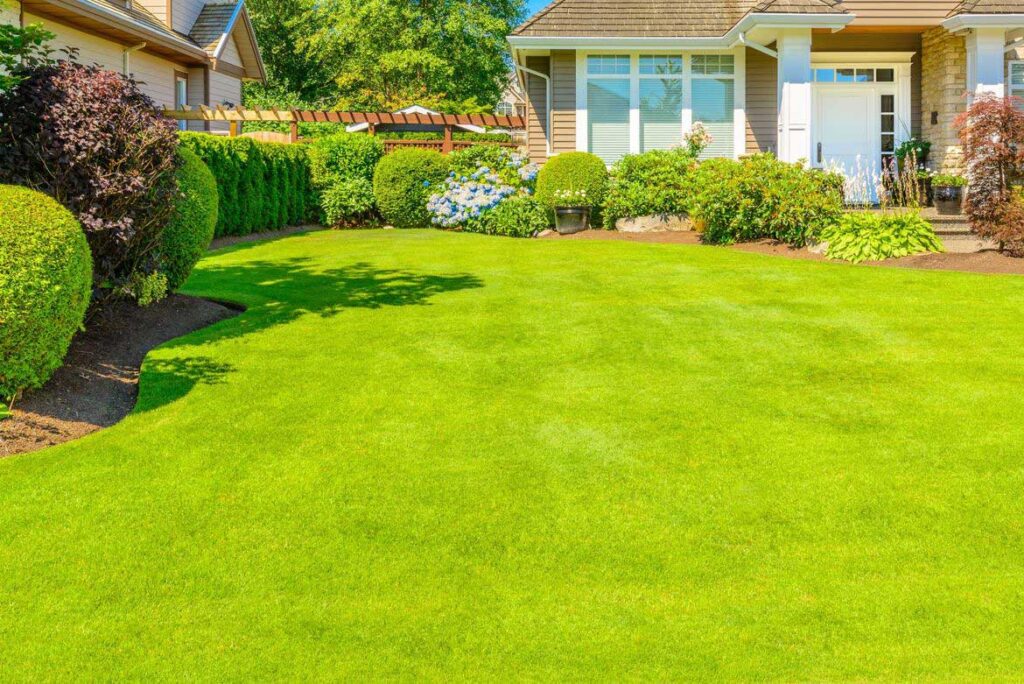We love our healthy lawns! Did you know that lawns play an important ecological role? On top of enhancing the landscape of your town, lawns have many environmental benefits. Here are 5 reasons to love your lawn even more!
5 benefits lawns have on the environment
- Lawns contribute to reducing greenhouse gas emissions
We tend to forget that lawns are part of the plant family. This means that like trees, it retains CO2 and frees it from the oxygen. To give you an idea, a healthy medium sized lawn can retain and transform more than 10 tons of CO2 per year. This is a huge amount for such small pieces of herbs.
- Lawns improve air quality
On top of retaining CO2, lawns contribute to bettering the air quality by acting as a trap for numerous polluting particles in the air, like dust. The result: a better air quality for all those around!
- Lawns help combat heat waves
Because grass is mostly made of water, it cools the air in a significant way, especially if we compare it to pavement or concrete. In cities, we notice that temperatures taken above grassed areas are 5 to 10 degrees cooler than the temperatures above pavement. A remarkable difference, right?
- Lawns filter rain water
In urban areas, rain water is filled with pollution. Thanks to its complex root system, grass can trap and eliminate these polluting elements when they move through soil.
- Lawns prevent flooding
The roots of grass have a particular structure that favors water infiltration into the soil. In cases of mass precipitations, lawns absorb rain water, therefore contributing to the prevention of flooding and water accumulation.
It’s fascinating to see what a grass surface can do for our beautiful planet!
It is important to mention that the benefits of lawns are maximized when they are healthy, emphasizing the importance of maintaining them. For the best care, confide your lawn to the Nutrite Expert of your region, certified Carbon Neutral.




